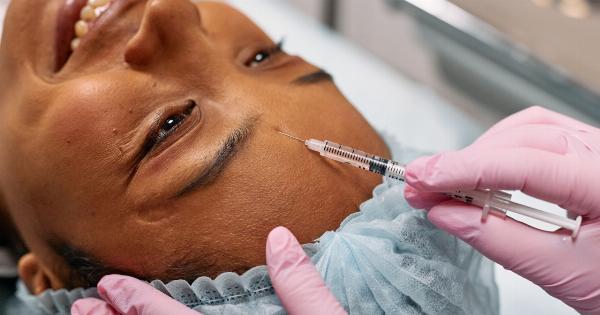When considering breast augmentation, many women are predominantly focused on achieving their desired physical appearance by opting for silicone breast implants.
However, it is essential to recognize that there can be potential mental health complications associated with this cosmetic procedure. While silicone breast implants are generally safe and provide satisfactory results for most individuals, there is a subset of women who may experience adverse psychological effects.
In this article, we will explore the potential mental health complications that can arise from silicone breast implants and shed light on the importance of thorough consideration and informed decision-making before undergoing the surgery.
Understanding Silicone Breast Implants
Silicone breast implants consist of an outer shell made of silicone and are filled with a cohesive silicone gel. These implants are widely used in cosmetic and reconstructive breast surgeries due to their natural feel and appearance.
They have undergone rigorous testing and modifications over the years, improving their safety profile. Despite extensive research and improvements, there are still potential complications to be aware of, including mental health implications.
The Link between Silicone Breast Implants and Mental Health
Various studies have explored the connection between silicone breast implants and mental health complications.
While the majority of women with breast implants do not experience significant psychological issues, a subset may develop symptoms such as anxiety, depression, body dysmorphic disorder, and even suicidal thoughts.
A study published in the New England Journal of Medicine followed over 3,000 women with breast implants for an average of six years.
The results indicated that there was an increased risk of suicide among women with silicone breast implants compared to the general population.
However, it is crucial to note that this increased risk may not be directly caused by the breast implants alone but can be influenced by various factors such as pre-existing mental health conditions, dissatisfaction with surgical outcomes, or other life stressors.
Body Dysmorphic Disorder and Silicone Breast Implants
Body dysmorphic disorder (BDD) is a mental health condition characterized by obsessive preoccupation with perceived flaws in one’s physical appearance.
Individuals with BDD frequently seek cosmetic procedures in an attempt to address their concerns. Unfortunately, some women who undergo breast augmentation with silicone implants may experience exacerbation of BDD symptoms or develop BDD for the first time.
A study published in the Aesthetic Surgery Journal found that nearly 7% of women seeking breast augmentation surgery displayed symptoms consistent with BDD.
These individuals have an unrealistic perception of their physical appearance and tend to seek multiple cosmetic procedures without obtaining satisfaction. When considering breast augmentation, it is critical for both the surgeon and the patient to screen for any signs of underlying BDD.
Anxiety and Depression
It is not uncommon for individuals to experience anxiety or depression after undergoing any surgical procedure, including breast augmentation.
Some women may develop feelings of regret or dissatisfaction with their decision, leading to diminished mental well-being.
A study published in the Plastic and Reconstructive Surgery Journal examined the psychological impact of breast augmentation surgery on women. The results revealed an increase in anxiety and depression symptoms within the first month post-surgery.
However, these symptoms tended to diminish over time, suggesting that early psychological support and counseling can play a vital role in minimizing the long-term effects of anxiety and depression.
Societal Influences and Self-Esteem
Societal influences, including media and cultural norms, can significantly impact an individual’s self-esteem and body image perceptions.
Breast augmentation is often undertaken with the belief that it will improve self-confidence and overall well-being. However, if the underlying issue relates to poor self-esteem or body image distortion, even successful surgery may not address the root cause of psychological distress.
Research published in the Aesthetic Surgery Journal examined the effects of breast augmentation on self-esteem and body image satisfaction.
The study found that while breast augmentation initially improved self-esteem and body image, the effects were not consistently long-lasting. It is crucial to have realistic expectations and understand that breast implants alone may not resolve deep-rooted self-esteem issues.
Importance of Informed Decision-Making
Given the potential mental health complications associated with silicone breast implants, it is crucial for individuals to engage in thorough and informed decision-making.
Before deciding on breast augmentation, it is advisable to consult with a board-certified plastic surgeon who can provide comprehensive information about the procedure, potential risks, and available alternatives. Additionally, individuals should consider their motivations, underlying mental health conditions, and seek psychological support if necessary.
Choosing to undergo any cosmetic procedure should be a well-considered and personally motivated decision.
Understanding the risks and possible effects on mental health will help individuals make an informed choice aligning with their overall well-being.




























